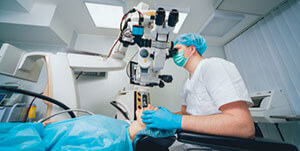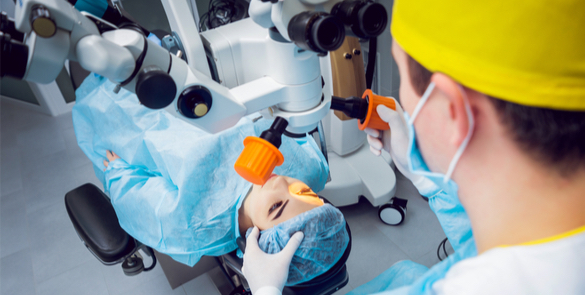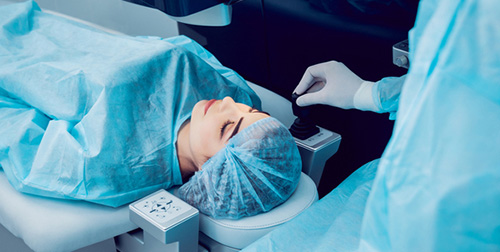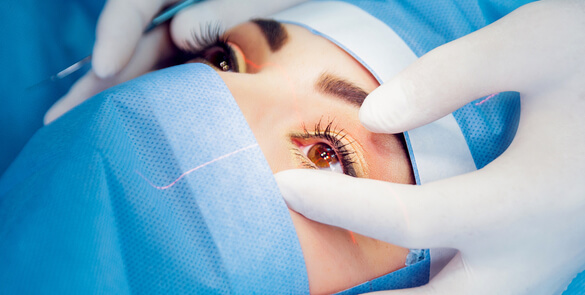10 March 2015 (Dubai, United Arab Emirates): Marking the conclusion of World Glaucoma Awareness Week 2015 (March 8-14, held under the theme of BIG – Beat Invisible Glaucoma), the Glaucoma experts at Moorfields Eye Hospital Dubai is calling for continued and greater awareness of the risk of this disease and highlighting the need for regular… Continue reading Dubai-based glaucoma experts encourage regular Glaucoma screening in the UAE; link to Diabetes increases risk of Glaucoma
Dr. Muralidharan Upendran
MBBS, MS (Ophth), MRCOphth, FRCOphth Consultant Ophthalmologist Vitreo-Retinal Surgeon GCAA Approved Specialist Medical Examiner]Dr. Muralidharan Upendran is a Consultant Ophthalmologist with sub-specialist training in Vitreo-Retinal surgery. He specialises in the surgical management of retinal disorders including retinal detachment, macular disease, diabetic retinopathy and ocular trauma. He also specializes in the medical management of retinal vascular… Continue reading Dr. Muralidharan Upendran
Dr. Muralidharan Upendran
MBBS, MS (Ophth), MRCOphth, FRCOphth Consultant Ophthalmologist Vitreo-Retinal Surgeon GCAA Approved Specialist Medical Examiner]Dr. Muralidharan Upendran is a Consultant Ophthalmologist with sub-specialist training in Vitreo-Retinal surgery. He specialises in the surgical management of retinal disorders including retinal detachment, macular disease, diabetic retinopathy and ocular trauma. He also specializes in the medical management of retinal vascular… Continue reading Dr. Muralidharan Upendran
Dr. Osama Giledi
MBBch, FRCSEd Consultant Ophthalmologist Specialist in Cataract, Cornea and Refractive Vision Correction Surgery GCAA Approved Specialist Aeromedical Medical Examiner Associate Professor of Ophthalmology (Adjunct) Dr Osama Giledi is a highly experienced consultant ophthalmologist who specialises in Cornea, Anterior Segment, Cataract and Refractive Surgery. He is also skilled in managing ocular surface problems including severe dry… Continue reading Dr. Osama Giledi
Dr. Osama Giledi
MBBch, FRCSEd Consultant Ophthalmologist Specialist in Cataract, Cornea and Refractive Vision Correction Surgery GCAA Approved Specialist Aeromedical Medical Examiner Associate Professor of Ophthalmology (Adjunct) Dr Osama Giledi is a highly experienced consultant ophthalmologist who specialises in Cornea, Anterior Segment, Cataract and Refractive Surgery. He is also skilled in managing ocular surface problems including severe dry… Continue reading Dr. Osama Giledi
Dr. Paola Salvetti
MD Consultant Ophthalmologist Specialist in Medical Retina Clinical Lead Aviation Medicine GCAA Approved Specialist Medical Examiner CASA Designated Aviation Ophthalmologist Dr. Paola Salvetti is an experienced ophthalmologist and retina specialist with substantial clinical and research experience in the diagnosis and treatment of retina diseases, gained in the USA, France and Italy. In addition, Dr Salvetti… Continue reading Dr. Paola Salvetti
Dr. Mohammed Sohaib Mustafa
MBBCh, PGDip, MRCOphth, FEBO, FRCS Consultant Ophthalmic Surgeon, Specialist in Glaucoma and Cataract Surgery GCAA Approved Specialist Ophthalmologist and Aeromedical Examiner Associate Professor of Ophthalmology (Adjunct) Dr. Mustafa is a General Ophthalmic Surgeon and subspecialist in Glaucoma & Cataract, with experience in the latest surgical techniques in complex glaucoma management including microdrainage devices, laser treatment and… Continue reading Dr. Mohammed Sohaib Mustafa
Dr. Avinash Gurbaxani
MB BS, DOMS, FRCS (Ed) (Ophth) Consultant Ophthalmic Surgeon in Uveitis and Medical Retinal Diseases and Cataract Surgery Chief of Retina Service, Moorfields UAE Associate Professor Of Ophthalmology (Adjunct) Dr. Gurbaxani specialises in the assessment and management of uveitis and inflammatory eye disease (uveitis, infectious diseases, autoimmune diseases of the eye) as well as medical… Continue reading Dr. Avinash Gurbaxani
Information about Cyclodiode Laser Treatment
The diode laser is a highly concentrated beam of light, which can be used to target and treat a selected area. Sometimes, laser treatment is recommended in order to avoid or delay the need for more invasive surgery. The diode laser is used to produce very small burns in the ciliary body, which produces the… Continue reading Information about Cyclodiode Laser Treatment
Vitrectomy Surgery
A vitrectomy surgery is microsurgery performed to remove the jelly and replace it by a saline solution, gas or a special type of silicone oil. The most common reasons for operating on the retina are retinal detachment, diabetes and scarring on the retina. For more information about vitrectomy surgery in Dubai, contact us today.
Squint Surgery in Adults
This information aims to answer some of the questions you may have about squint surgery. However, it does not cover everything as every patient and squint is different. Your surgeon will discuss your particular case with you. Please ask the clinical staff about anything you want to be made clear. What is the aim of… Continue reading Squint Surgery in Adults
Selective Laser Trabeculoplasty
Selective Laser Trabeculoplasty (SLT) is a procedure used to reduce the pressure in the eye (also known as intra-ocular pressure). A laser beam is applied to the drainage channels, which helps to unclog them. This means the aqeous humour flows through the channels better, reducing the pressure in the eye. This is not a permanent… Continue reading Selective Laser Trabeculoplasty



